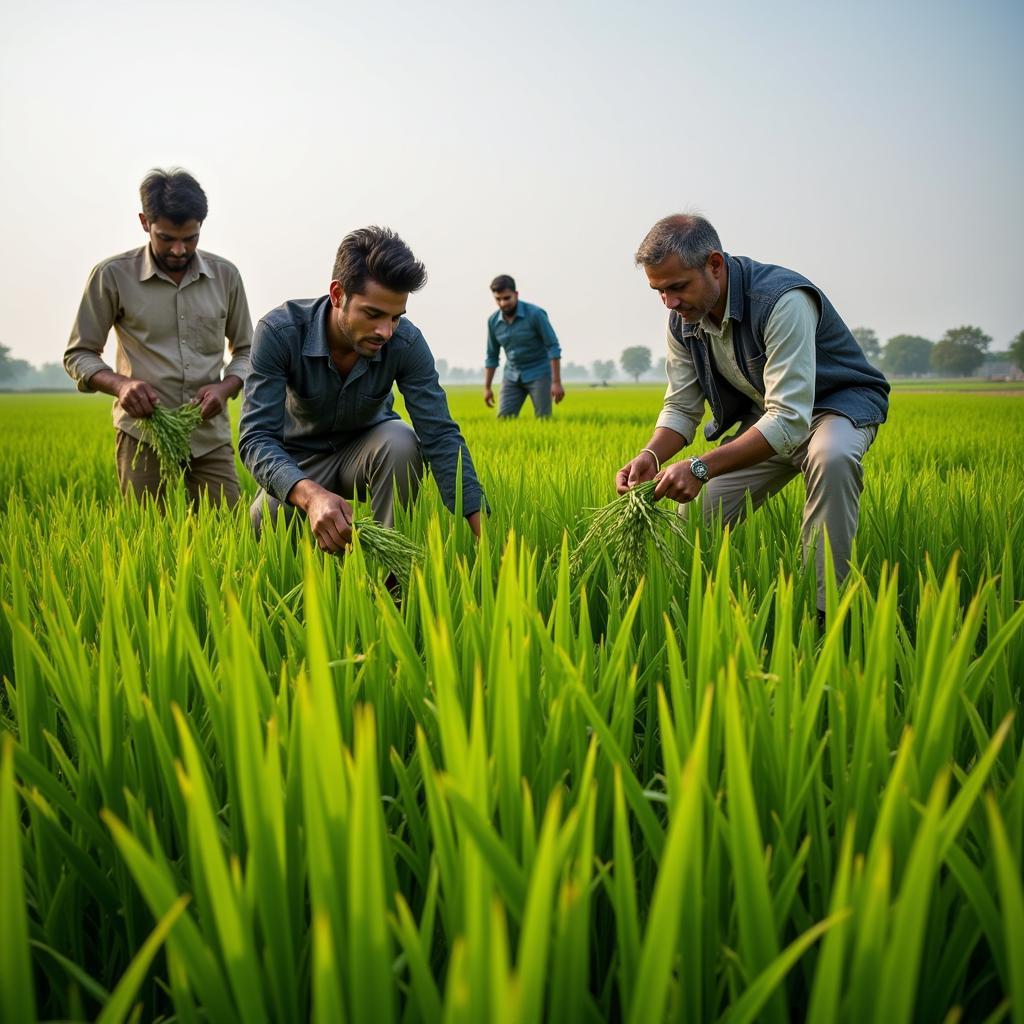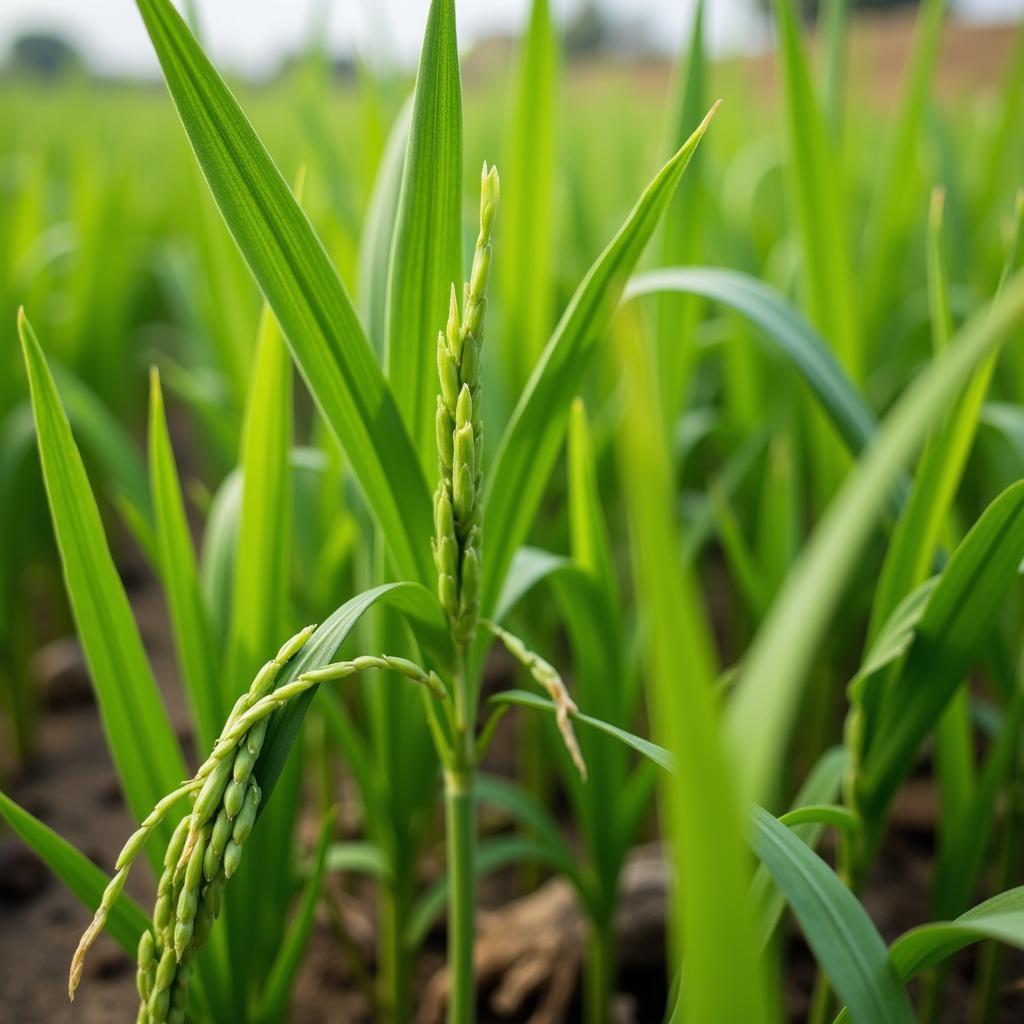Hybrid rice varieties are transforming Pakistan’s agricultural landscape, offering a crucial pathway to enhanced food security. Within the last few decades, the adoption of these high-yielding varieties has become increasingly important, addressing the nation’s growing food demands and contributing to economic stability. This article explores the impact, challenges, and future potential of hybrid rice in Pakistan.
The Promise of Hybrid Rice: Higher Yields and Enhanced Resilience
Hybrid rice varieties are developed by cross-pollinating two genetically distinct parent lines, resulting in offspring with superior traits such as increased yield potential, improved pest resistance, and better adaptability to various environmental conditions. For a country like Pakistan, where rice is a staple food and a significant contributor to the economy, the introduction of hybrid rice has been a game-changer. These varieties offer yields significantly higher than traditional varieties, potentially boosting production and reducing the reliance on imports. Furthermore, some hybrid varieties are more resilient to drought, salinity, and diseases, mitigating the risks associated with climate change and increasing the stability of rice production. This improved resilience is especially important in Pakistan, where water resources are becoming increasingly scarce.
The higher yields also translate to increased income for farmers, contributing to poverty reduction and economic growth in rural areas. The government has actively promoted the adoption of hybrid rice through various initiatives, including subsidies, training programs, and research support. This proactive approach has helped to accelerate the spread of these varieties across the country.
 Pakistani farmers harvesting hybrid rice in a lush green field
Pakistani farmers harvesting hybrid rice in a lush green field
Addressing Challenges: Seed Cost and Water Management
Despite the numerous advantages, the widespread adoption of hybrid rice faces several challenges. One of the major obstacles is the higher cost of hybrid rice seed compared to traditional varieties. This can be a barrier for small-scale farmers who may struggle to afford the initial investment. Another challenge is the need for optimized water management. While some hybrid varieties are more drought-tolerant, they generally require more precise irrigation than traditional varieties to achieve their full yield potential.
Furthermore, the availability of quality hybrid seeds and access to appropriate technical guidance remain crucial for successful adoption. Extension services play a vital role in educating farmers about best practices for cultivating hybrid rice, including proper water management, fertilizer application, and pest control.
 Close-up of healthy hybrid rice seedlings in a Pakistani nursery
Close-up of healthy hybrid rice seedlings in a Pakistani nursery
The Future of Hybrid Rice Varieties in Pakistan
The future of hybrid rice in Pakistan looks promising. Ongoing research efforts are focused on developing new varieties with even higher yields, improved nutritional content, and enhanced resistance to biotic and abiotic stresses. The development of climate-resilient varieties is particularly crucial for ensuring sustainable rice production in the face of climate change.
The government’s continued support for hybrid rice research and development, combined with efforts to improve seed accessibility and farmer training, will be essential for maximizing the benefits of this technology. Investing in efficient irrigation systems and promoting sustainable water management practices will further enhance the productivity and resilience of hybrid rice farming.
Which Hybrid Rice is Best for Pakistan?
The choice of the best hybrid rice variety depends on several factors, including local climate conditions, soil type, water availability, and market demand. Farmers should consult with agricultural experts and extension services to identify the most suitable variety for their specific circumstances.
Conclusion: Securing Pakistan’s Rice Bowl with Hybrid Varieties
Hybrid rice varieties have emerged as a powerful tool for boosting rice production and enhancing food security in Pakistan. By addressing the challenges related to seed cost, water management, and access to technical expertise, Pakistan can fully unlock the potential of hybrid rice and pave the way for a more sustainable and prosperous agricultural sector. Further research and development, combined with continued government support and farmer education, will be crucial for realizing the full benefits of hybrid rice and ensuring the long-term viability of this important crop. Consider the hybrid rice seed price in Pakistan when making your choice. If you are looking to power your farm sustainably, check out which battery is best for solar system in Pakistan.
FAQs
-
What are the main advantages of hybrid rice?
Higher yields, improved pest resistance, and better adaptability. -
What are the challenges of growing hybrid rice?
Higher seed cost and the need for precise water management. -
Where can I get hybrid rice seeds in Pakistan?
Contact local agricultural suppliers and government extension services. -
How much does hybrid rice seed cost?
Prices vary depending on the variety and supplier. Check resources like hybrid rice seed price in pakistan. -
Do hybrid rice varieties require more water than traditional varieties?
Generally, yes, they require more precise irrigation to achieve optimal yields. -
What is the government doing to promote hybrid rice in Pakistan?
Providing subsidies, training programs, and research support. -
How can I learn more about best practices for growing hybrid rice?
Consult with local agricultural experts and extension services.
When you need assistance, please contact us at Phone Number: +923337849799, Email: news.pakit@gmail.com or visit our address: Dera Ghazi Khan Rd, Rakhni, Barkhan, Balochistan, Pakistan. We have a 24/7 customer service team.